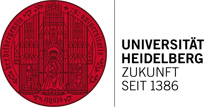Leibniz ScienceCampus on Language
A regional collaboration project of university and non-university research on “Empirical Linguistics and Computational Language Modelling” has taken up its work in Heidelberg and Mannheim at the beginning of 2015. In the new Leibniz ScienceCampus, scholars from the Institute for the German Language in Mannheim team up with researchers from Heidelberg University’s Department of Computational Linguistics. Their focus is on the development of new methods, models and tools to compile and analyse digital language corpora. Project funding of 2.6 million euros has been approved for a period of four years. Besides the Leibniz Association, Baden-Württemberg’s Ministry of Science, Research and the Arts is also providing financial support.
“Modern ways of storing and analysing language electronically in the form of texts or audio-recordings have the potential to revolutionise existing research methods in linguistics, the humanities and cultural studies. New approaches and tools have to be developed to manage, process and analyse big data, and make it available for other applications,” underlines Prof. Dr. Andreas Witt, the designated spokesperson of the joint project and director of the Research Infrastructures programme area at the Institute for the German Language. “The Leibniz ScienceCampus aims to develop innovative research methods in the field of linguistics and computational linguistics. We also want to make these methods and tools available for new research questions in the digital humanities,” adds Prof. Dr. Anette Frank, executive director of the Department of Computational Linguistics at Heidelberg University.
The central research themes of the Leibniz ScienceCampus include the processing and statistical analysis of huge amounts of language data. The scientists involved want to build on this to develop innovative language processing models for German. These models are intended to enable the automatic analysis of language from different genres and domains and thereby improve the interpretation of language corpora from different sources and applications – e.g. social media texts, spoken language and specialist or literary texts. Besides linguists from the Institute for the German Language and computational linguists from Heidelberg University, other partners involved in the joint project include computer scientists and linguists from the University of Mannheim and Heidelberg University, along with computational linguists from the Heidelberg Institute for Theoretical Studies (HITS).
The purpose of a Leibniz ScienceCampus is to boost interdisciplinary cooperation between university and non-university research. It “promotes cooperation on an equal footing between Leibniz member institutes” – in this case the Institute for the German Language – “and universities in the form of thematically focused, complementary regional partnerships”. The Leibniz Association’s aim is to create networks in order to expand the respective field of research and raise its scientific research profile.

